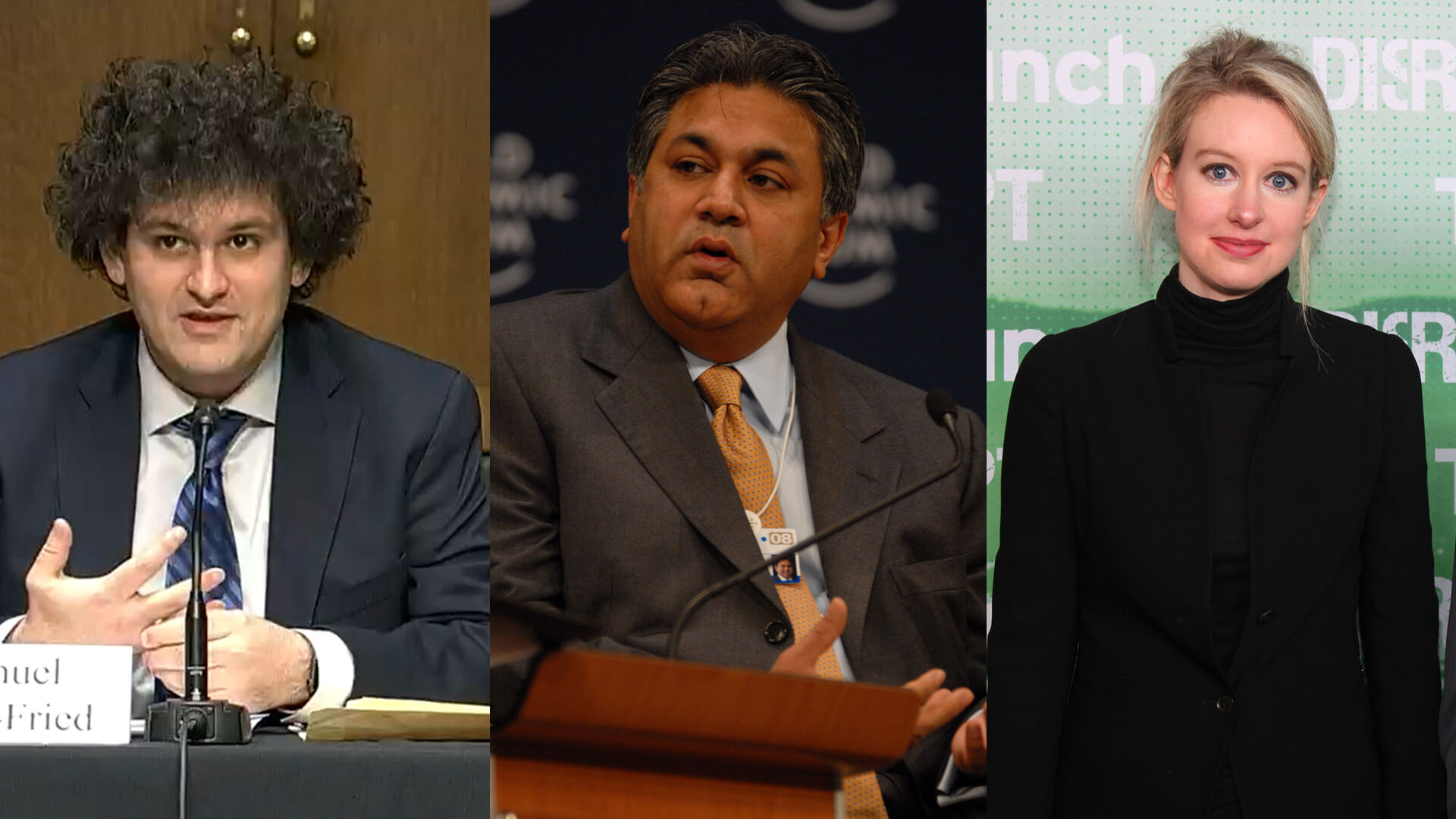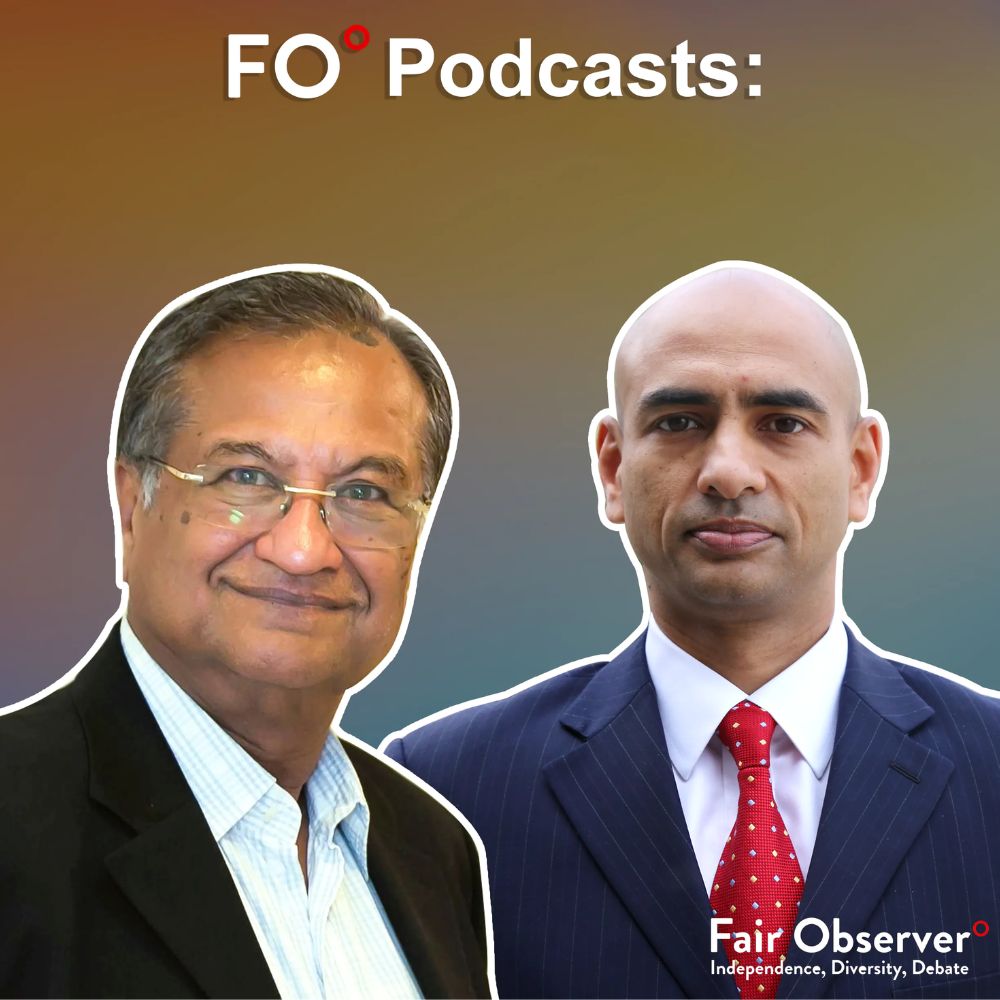Arif Naqvi was the founder of Abraaj Capital, the UAE-based private equity firm that put “Global Growth” markets on the map. When I met him in Davos at the World Economic Forum in January 2018 as a budding 24-year-old entrepreneur, I was in awe. Little did I know that this was his last visit to Davos—and possibly my last attempt to raise capital from Abraaj. That very spring, a fusillade of fraud allegations precipitated Naqvi’s abrupt fall from grace. He is now awaiting extradition to the United States.
Years later, as I read journalists Simon Clark and Will Louch’s vivid telling of Naqvi’s story in their book, Key Man, it dawned on me how disillusioned young people with global aspirations must be feeling. As BBC’s recent documentary on the subject describes, Naqvi had convinced billionaire investors and even governments that his firm was making money while improving the lives of people in the developing economies where he invested. It was a façade. His investments were not nearly as successful as he claimed them to be, and he took hefty management fees while keeping the business afloat using borrowed cash. Now, he is facing charges that add up to a potential 291-year prison sentence.
Naqvi was no isolated phenomenon. This sort of thing seems to be becoming a pattern. The Guardian published an article entitled, “30 under 30-year sentences: Why so many of Forbes’ young heroes face jail.” The article talks about the messes created by Forbes 30 Under 30 awardees who inflated revenues, duped investors and fooled the world just to satisfy the greed created by a “get-rich-quick” mentality.
One such case is that of Sam Bankman-Fried, who was the boy-wonder face of crypto at 30 years old. He founded FTX, one of the world’s largest cryptocurrency exchanges, and amassed a $16 billion fortune. His meteoric rise was soon overshadowed by a devastating downfall, once again due to fraud charges that left both his business empire and his once-pristine image as an altruistic billionaire in ruins. Similarly, Stanford University dropout Elizabeth Holmes, renowned as the visionary behind the Silicon Valley unicorn Theranos, was convicted of conspiring to defraud investors in June 2022. She is now serving an 11-year prison sentence in Texas.
In a world of ambition and success, fallen icons like Naqvi, Bankman-Fried and Holmes reflect a crisis of ethical leadership. Young entrepreneurs are being raised in a toxic mentality that prioritizes success—quick success—over ethics, integrity and honesty. At the root of the problem is the conception of what “success” means at all.
We must reconceptualize success. Real success is not short-term dollar gains. Private capital is the key to changing today’s world and tackling issues such as climate change, hunger, poverty and disease. But without moral leadership, none of this is possible. Greed, lies and embezzlement can build nothing.
Real success is authentic, integrity-driven impact. Not the superficial, flimsy term “impact” used to impress in today’s world, but honest questions like: How many people have I helped with this business? How many have become independent and empowered? Have I been able to generate employability? Young entrepreneurs must prioritize ethical, purpose-driven practices to build resilient, transformative businesses. Embracing transparency and integrity can redefine success and inspire hope for a better world.
Another important role lies with the media and journalists—not to glorify stories of overnight success, but to speak about the genuine struggles and challenges on the uphill journey of entrepreneurship.
Lastly, as a business student myself, I feel it is crucial for every business school in the US and across the world, to have as a core subject not only leadership, but also ethical leadership—delving into the cautionary tales of businesses and entrepreneurs led astray by greed, derailing them on their way to triumph.
[Anton Schauble edited this piece.]
The views expressed in this article are the author’s own and do not necessarily reflect Fair Observer’s editorial policy.
Support Fair Observer
We rely on your support for our independence, diversity and quality.
For more than 10 years, Fair Observer has been free, fair and independent. No billionaire owns us, no advertisers control us. We are a reader-supported nonprofit. Unlike many other publications, we keep our content free for readers regardless of where they live or whether they can afford to pay. We have no paywalls and no ads.
In the post-truth era of fake news, echo chambers and filter bubbles, we publish a plurality of perspectives from around the world. Anyone can publish with us, but everyone goes through a rigorous editorial process. So, you get fact-checked, well-reasoned content instead of noise.
We publish 2,500+ voices from 90+ countries. We also conduct education and training programs
on subjects ranging from digital media and journalism to writing and critical thinking. This
doesn’t come cheap. Servers, editors, trainers and web developers cost
money.
Please consider supporting us on a regular basis as a recurring donor or a
sustaining member.
Will you support FO’s journalism?
We rely on your support for our independence, diversity and quality.





Comment